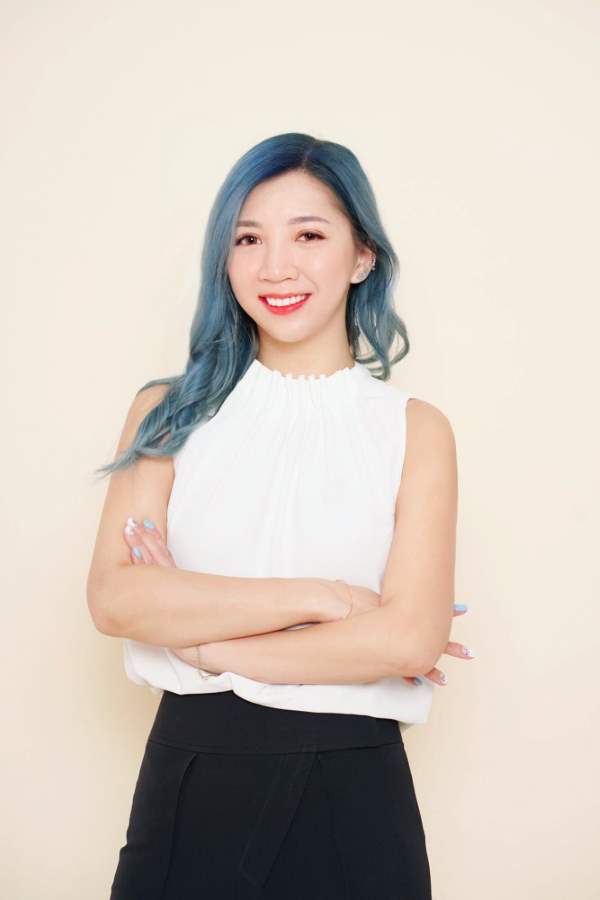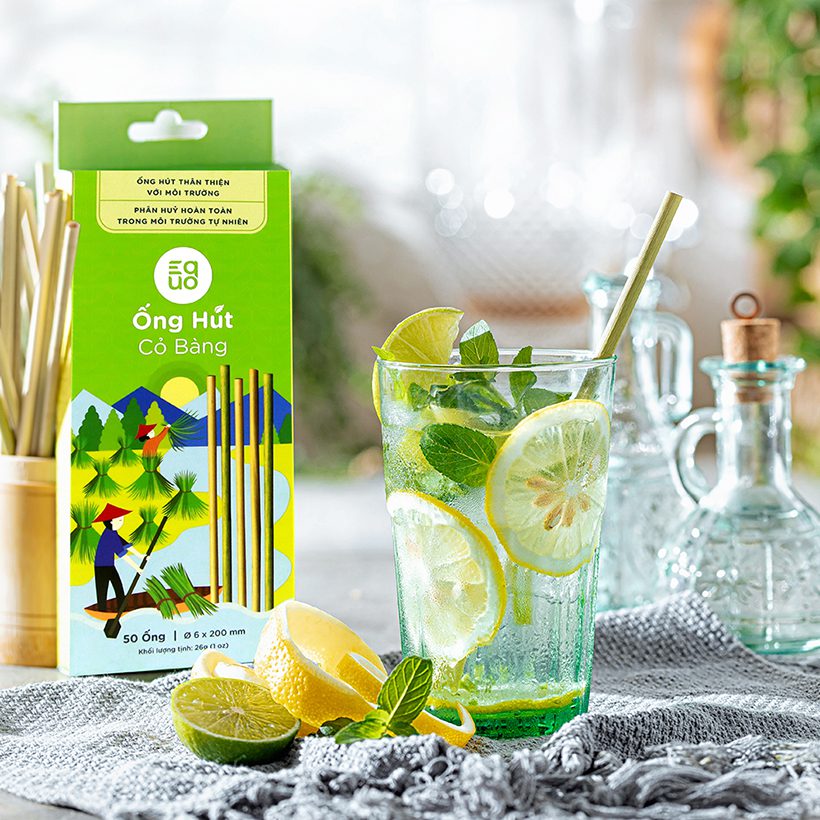As a part of the Morning Lazziness series about strong women leaders who attained success with their incredible ideas, I had the pleasure of interviewing Marina Tran Vu.
“Success isn’t about how much money you make; it’s about how the difference you make in people’s lives” – Michelle Obama
Recently named as one of FLIK’s 21 Womxn Entrepreneurs to watch in 2021, Marina Tran Vu is a noteworthy Vietnamese Canadian Businesswoman. She is a founder and CEO of ‘EQUO,’ derived from the word ECO, meaning not harmful to the environment. STATUS QUO, meaning existing state or condition, EQUO stands for the ideal products with minimal impact to the environment. Before starting her own company, Marina has worked with top-tier brands like Unilever, Bacardi, and LG in Canada. Moreover, she holds over 10 years of marketing and brand management experience.
With an idea in a Vietnamese coffee shop, a promise to build a sustainable future for her nephew, and aware more people about eco-friendly products, with that thought, she decided to start EQUO, and this is how she became an inspiring women entrepreneur. Marina follows, “Better an oops than what if,” that’s why she grabbed the opportunity and framed her purpose into life as one of the leading international brands, EQUO; providing 100% natural, plastic-free, non-toxic, chemical-free & biodegradable, and compostable.
Believing in, ‘every action, no matter how small, is a step towards helping preserve the earth,’ EQUO is striving for a green and better world.
Many thanks for doing this for us; please let our users know about yourself and your company- Equo International?
My name is Marina, Founder & CEO of EQUO. EQUO is a sustainable brand delivering easy solutions for everyday single-use plastic items. The first line of products is drinking straws made from grass, rice, coconut, and sugarcane that are 100% plastic-free, biodegradable, compostable, and non-toxic! Additional categories will include utensils, dishware, and stationery. They are easy, no-brainer switches so simple, you may not even notice them – even though Mother Nature does. We at EQUO don’t force you to use one material that has limitations in colors, size, use, or disposability. We don’t ask you to learn or change your actions or behavior. Also, we want you to continue going about your day – except in a way that is better for the environment.
How is your journey as an entrepreneur, and what inspires you to start an Eco-friendly brand Equo?

Being an entrepreneur has been the most difficult thing I’ve ever had to do in my life. Launching it during the pandemic was especially difficult given the instability of the market, economy, and so many unanticipated challenges.
I was inspired to start EQUO because I want to build a brighter, more sustainable future for my nephew and to create jobs in my parents’ home country of Vietnam. I want to elevate the talent and innovation from Vietnam to a world stage while also changing the planet through sustainable solutions.
What makes your brand Equointl different from others? Why should people opt for eco-friendly products?
What makes us different is our approach to the category. For the longest time, everyone treated straws as this homogenous category that didn’t really have a lot of choices besides color and design. We’re saying straws are just like any other category, and consumers want choices that cater to their preferences. That’s why we offer a variety of different materials.
Also, we are coming in and branding a typically commoditized category, similar to bottled water and tissue paper, and giving people a reason to care about their choice in straw or fork – things they never thought twice about. We are a bright, loud, eye-catching brand to get people’s attention, educate them about our products and offerings, and then deliver on providing them choices.
Do you think reusable and biodegradable can be one of the solutions for climate change?

I think they can be viable, long-term solutions if we can balance consumer needs with sustainability. Consumers care about the world and climate, we know that, but they also need to balance it with their functional and behavioral needs, which include convenience and ease of use. The easier we make it for them to be sustainable, the better. In addition, if we can work on cost efficiencies and mass adoption, then the individual solutions collectively can really have an impact on our planet.
What would you say are the top 3 skills needed to be a successful entrepreneur, and why?
- Quick-Learning – As an entrepreneur, you have to put on a lot of hats and do many things you may not be used to to get things done for your business. Learning quickly is essential to getting this done.
- Adaptive – You have to quickly adapt to situations because nothing will ever go to plan. Being able to roll with the punches is essential.
- Resilience – For the simple reason that nothing will ever go right or be easy when you start out a business, so weathering the storm is essential to be able to reap the rewards.
What are your plans for the future? How do you plan to grow this company?

We are working to drive mass awareness fast and get people to really give us a chance. We are confident that if people try our product, they will love it and advocate for change in their neighborhood restaurants, cities, and government.
We are planning to also expand our distribution to different regions, countries and also expand our product line offering to provide a number of solutions for single-use plastic.
There is no shortage of good ideas out there, but people seem to struggle to take a good idea and translate it into an actual business. How did you overcome this challenge?
The key idea is to make sure that the idea is something that people need and that they want at the right time. If you are able to figure out those three things first, then everything else is easy. The one other thing to remember is that if you can’t make money, you can’t deliver your idea to everyone who may need it, so focusing on profitability is important.
What were the top three mistakes you made starting your business, and what did you learn from them?
– Hiring agencies or third parties to do work for you. While this may work at a corporate level, for small businesses, this can eat up costs quickly without being delivered the focus, attention, and level of work you expect. We learned this costly lesson as it seemed like we weren’t able to get from our third-party services the same caliber of work as those in-house. Some of the biggest things we achieved we did by ourselves.
– Trusting resumes – One of the biggest things I learned is someone’s resume is not indicative of their ability to adapt or work well, especially in an unstructured environment like a startup or during a pandemic where you have to work from home, instead of being in the office all day. My best hires were those who were less experienced but willing to put in the work, had the energy to learn, and the ability to adapt quickly. Some of my worst hires were those who had amazing credentials but ultimately had been so far removed from daily, menial tasks and the high demands of a startup.
– Self-doubt – One of the biggest mistakes was thinking that I needed to rely on others to help me shape my vision. No one knows your vision, your business, and your strengths more than you. You have to trust yourself to keep going because people may come and go, but the one constant you can rely on is yourself.
What’s a productivity tip you swear by?
Always archiving my email. Trying to make sure you action and sort your email every day will make your list of tasks for that day seem less daunting. It also helps you prioritize. A clean inbox is the most satisfying thing in the whole world.
What helps you stay driven and motivated to keep going in your business?
They belief and knowledge that what we are doing with EQUO is really going to make an impact. I truly believe what we are doing is going to change the world and lives of everyone. Keeping that in mind gives me the drive to do what I do every single day.
What valuable advice would you give new entrepreneurs starting out?
To overcome the fear of starting, I always remember that I’m just one of the billions of people in the world. Yes, I might fail, or be embarrassed, or totally bomb at something, but so do billions of other people at the exact same moment in time. So in the scheme of the whole universe, that fear you have of failing will only be remembered for a second before it is gone and forgotten. Also, the fear of not knowing drives me. Not knowing how things could be and how much you can achieve trumps the fear of not trying.
Has there ever been a moment when you thought to yourself, “I can’t take it anymore, I’m going to get a “real” job? If so, how did you overcome it?
I have, but they recalled how much freedom I lost working on someone else’s dream and someone else’s clock. It’s hard to find a company that will respect your thinking and time. So that’s what keeps me driving forward to continue with my own business.
What is it that you enjoy most about running your own business? What are the downsides of running your own business? Can you share what you did to overcome these drawbacks?
The things I enjoy most about running my own business is the little wins. You struggle so hard for so long, and then when you get a sale, or a contract, or a partnership, it’s like the whole world is celebrating with you.
Running your own business is full of uncertainties, and you are really putting your life on the line. The best way to get over this is to surround yourself with a great group of people who believe in you and want to support you.
At last, what is your definition of success?
Success is whatever makes you feel happy and accomplished. I’m not saying you’ll be happy all the time, but if you can look back on it and say, man, we did something awesome, then that in itself is a success.
Thank you for these fantastic insights. We greatly appreciate the time you spent on this.


